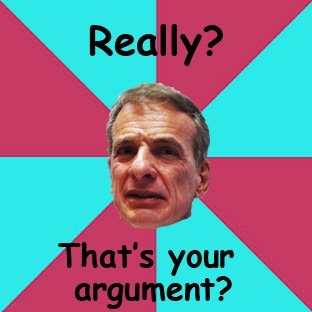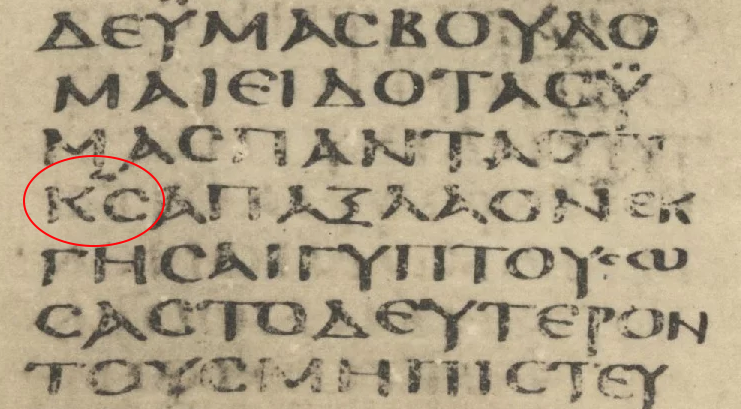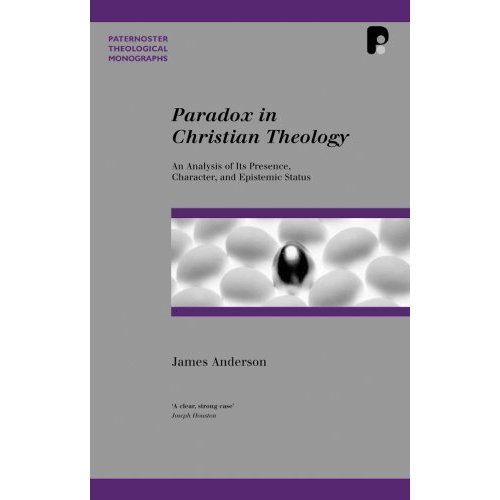Search Results for: Rahner's Rule
Kimel’s review of What is the Trinity – Part 2
Kimel lampoons the biblical unitarian historical narrative, and urges that Irenaeus is a big problem for it.
why I am not a Thomist 2 – the possibility of a non-simple Source
Last time I sketched out the broad, old, deep case for the Christian God being a being. This time, I want to explain where and why I get off the Thomist metaphysical bus before it reaches its destination. The Thomist project looks something like this. (I know this is oversimplified; I don’t think it matters for the subjects before us though. Correct me in the… Read More »why I am not a Thomist 2 – the possibility of a non-simple Source
Jude 5: Did Jesus deliver the people out of Egypt?
Is it “Lord” or “Jesus” here? What’s a layperson to do?
Blue Babies Pink: from evangelical Christian to liberationist
This man’s journey reflects and reveals some problems with present-day evangelical teaching.
What is essential to the gospel, according to Luke? Part 2
An apostolic account of what is truly essential to the gospel.
10 steps towards getting less confused about the Trinity – #9 – Formulas vs. Interpretations
While there have long been standard terms and sentences relating to the Trinity, there is not and has never been any clear consensus about how to understand those terms and sentences. There is agreement about what the sentences do or don’t imply (Tritheism? No. Monotheism? Yes. Ontological inequalities between the three? No.) But there is not an interpretation of the sentences themselves which is held… Read More »10 steps towards getting less confused about the Trinity – #9 – Formulas vs. Interpretations
the evolution of my views on the Trinity – part 7
Dallas Willard’s The Divine Conspiracy – its effect on my thinking.
Answer to Angeliqua’s “The 1-2 Punch Against the Charge that Trinity is Tritheism”
Dialogue with an apologist about changes of tritheism and “the doctrine of the Trinity.”
SCORING THE BURKE – BOWMAN DEBATE – ROUND 6 Part 1 – BURKE
In the 6th and closing round, Burke argues from reason, scripture, and history. From reason: The Trinity doctrine, argues Burke, is inconsistent with itself. The “Athanasian” creed presents us with three, each of whom is a Lord, and yet insists that there is only one Lord. As some philosophers have pointed out, it is self-evident that if every F is a G, then there can’t… Read More »SCORING THE BURKE – BOWMAN DEBATE – ROUND 6 Part 1 – BURKE
Dealing with Apparent Contradictions: Part 14 – James Anderson’s Paradox in Christian Theology
A book review I’ve written of philosophical theologian James Anderson’s Paradox in Christian Theology.
10 steps towards getting less confused about the Trinity – #2 Get clear about “God”
What sort of being is “God” supposed to be? Your answer to this will constrain your options when it comes to thinking about the Trinity. The “Trinity” (in the primary sense of the term) is supposed to be none other than the triune God, the tripersonal God of officially catholic traditions since the late 4th century. In other words, the Trinity and God are supposed… Read More »10 steps towards getting less confused about the Trinity – #2 Get clear about “God”
The Orthodox Formulas 5: The 4th Lateran Council (1215)
Now, on to the Fourth Lateran Council, convened by Pope Innocent III in 1215. This council, considered the 12th “ecumenical” council, was one of the all-time most important councils, which strongly shaped catholicism in the “high†middle ages. It was called, in part, to get another crusade going, after some crusading failures and set-backs. The resulting “constitutions†were proposed (and to some extent written by?)… Read More »The Orthodox Formulas 5: The 4th Lateran Council (1215)
On a Rebuttal to my “How Trinity theories conflict with the New Testament” – Part 5
Finally, the last part of this long, five-part series. Our friend Annoyed Pinnoy continues, Now there are varieties of gifts, but the SAME Spirit; and there are varieties of service, but the SAME Lord; and there are varieties of activities, but it is the SAME God who empowers them all in everyone.- 1 Cor. 12:4-6 Notice how Paul uses the word “SAME” three times. Once… Read More »On a Rebuttal to my “How Trinity theories conflict with the New Testament” – Part 5
the “Functional Polytheism” accusation
An apologist tries to tag unitarian Christians with some unwelcome words.
Craig wins again
 This post is a commentary on the Craig-Rosenberg debate. Most of my comments are in italics; factual reporting is in regular text.
This post is a commentary on the Craig-Rosenberg debate. Most of my comments are in italics; factual reporting is in regular text.
In short, Craig undeniably wins. I felt bad for Rosenberg, and could hear naturalistic philosophers of religion face-palming throughout the debate.
Debaters: there’s a lot you can learn from here.
- 8:00 The debate has judges? Yet no philosophers? Or rather, one who used to teach it?
- 17:14 – Debate finally starts. C comes out hitting on all cylinders, with a clean argument for a self (an “unembodied mind,” “a consciousness,” or “person”) which exists a se (he hedges with talk of “a personal being”) (person etc. – before 24 min). (See comment re: 37:00 below.)
- 25:30 It is clear that C has read some of Rosenberg’s work.
- C keeps his arguments simple, short, and understandable – though philosphers and other pros might prefer more detail. But this is effective communication; he knows his audience. His pace is conversational, and not a word is wasted. It is clear that C has tailored his arguments to his opponent, even while using mostly his standard arguments – and he points out some of the most ridiculous things R has said follow from naturalistic atheism.
- 28:00 – I don’t at all understand C’s comeback to the multiple cosmoi objection to the fine tuning argument. A rare mis-step in C’s debate performance.
- 37:00 C: God “can be personally known.” Never mind that God is NOT literally a self/person, or C’s controversial Trinity speculations, which he habitually presents as “the” doctrine of the Trinity. But, this does nothing to hurt him in this debate.
- 38:00 Rosenburg starts his case, and is hilariously rude. He falsely implies Read More »Craig wins again
Hays’s Nelson Muntz “objection” to unitarian theology
Real arguments vs. pointed questions combined with incredulous tone.
A letter from the Lord Jesus: About God and Me (Revised)
Dear Christian, I’ve been meaning to talk to you about God and me.

















